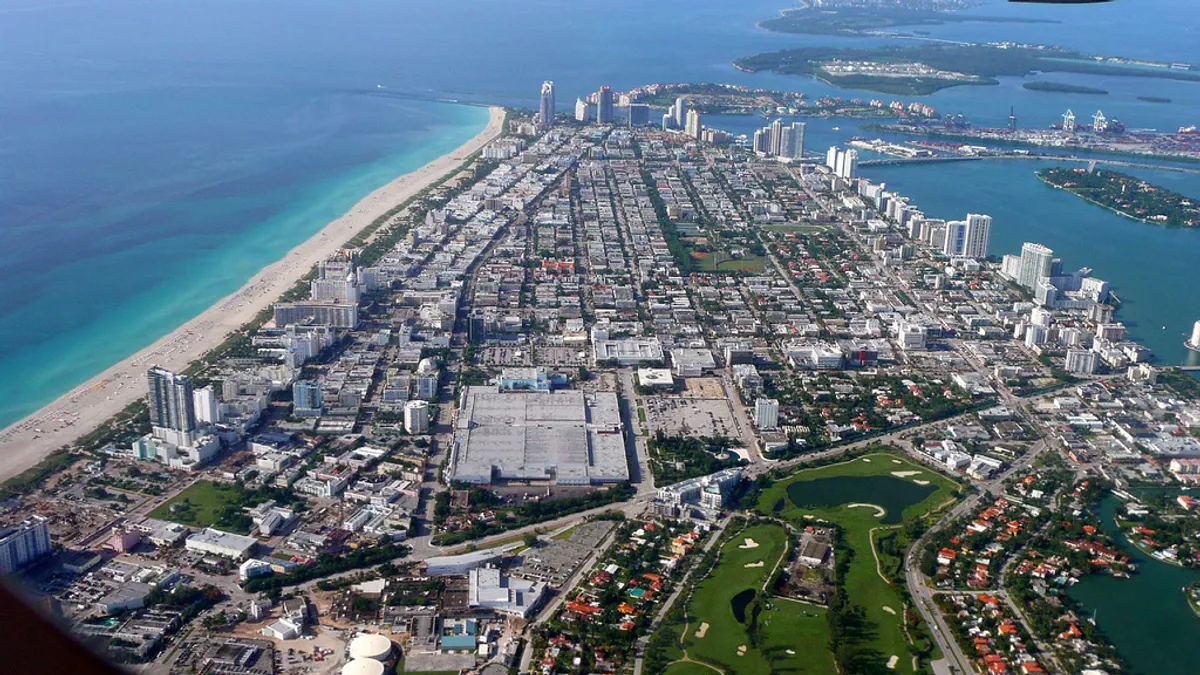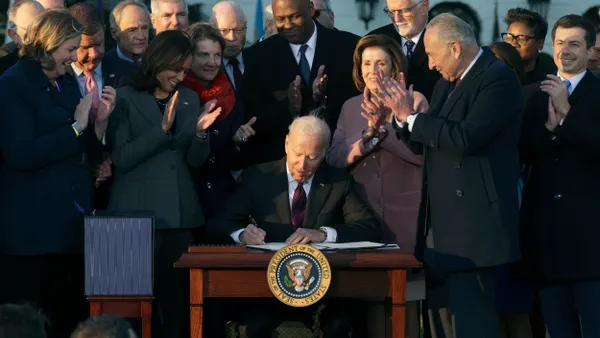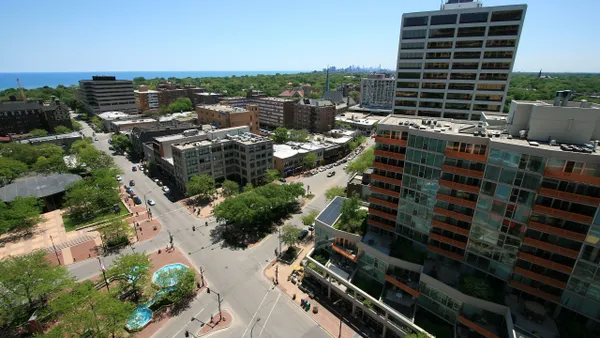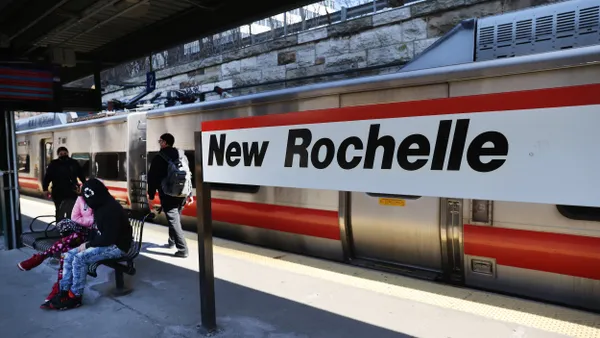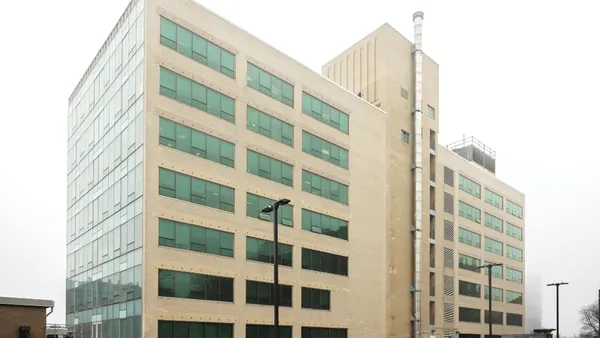Dive Brief:
- Miami is the third least affordable city in America and needs to build or preserve at least 50,000 housing units just to meet the existing need, reads the newly released Connect Capital Miami report. The report is intended to increase investment in affordable housing by clarifying shared priorities, identifying a development pipeline and enabling an environment to accelerate deals.
- The report notes that 71% of people in the city of Miami are renters and that 61% are cost burdened, meaning they spend more than 30% of their household income on housing. The report lists a goal of creating or preserving 12,000 affordable housing units by 2024.
- The report lists development criteria to serve as guidelines for building and preserving affordable housing such as incorporating supportive services, prioritizing mixed-income and mixed-use developments and considering resiliency and environmental sustainability. It suggests tools for city leaders and staff to address the housing crisis and provides recommended actions such as redeveloping public housing, changing the zoning code, reducing property taxes and considering a vacancy fee or tax. It also recommends addressing homelessness through measures such as building permanent, supportive housing.
Dive Insight:
Some might consider Miami a sleeper in the country's growing housing affordability crisis. It takes a backseat while many focus on the housing situations in tech-forward cities such as San Francisco and Seattle. But the Connect Capital Miami report illustrates the seriousness of the problem in South Florida.
Miami was hit hard by the housing bubble burst of 2008. At that time, the skyline was sprinkled with cranes indicating new development, but many of those developments stalled. Newly opened housing structures lost residents to foreclosures and a number of them sat mostly vacant as they had trouble filling units, many of which were marketed as "luxury" dwellings.
Miami's housing market is disproportionately influenced by a unique factor that affects only a few other U.S. cities to the same degree: foreign investment. A huge number of housing units are snapped up by individuals or entities in other countries to serve as investments or a way to hold non-cash wealth. A lot of these foreign investors live in South America and do not occupy or rent out their investment properties.
The number of investment properties sitting vacant is a problem in Miami because it drastically cuts into the available housing supply. The report states that as of 2017, nearly 32,000 homes in Miami-Dade County were owned but not occupied. The recommendation to consider a vacancy fee or tax would directly target foreign investors or others who let properties sit unoccupied. The suggested action is to implement a 1% property tax on vacant units, which would generate an estimated $98 million annually. Collected taxes or fees could go toward the city's Affordable Housing Trust Fund. Other cities that also suffer from a high amount of foreign investment and a large number of vacant units — such as Washington, DC — already incorporate a vacancy tax into their property assessment structure.



